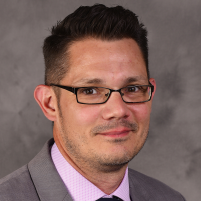|
|
| Opening Remarks |
| Monday, March 7, 2022 |
| 8:00 AM–8:10 AM |
| Fourth Floor; Grand Ballroom 1/2 |
| Chair: Terry S. Falcomata (The University of Texas at Austin) |
The program chair will provide opening remarks. |
|
| |
| |
|
|
| Teaching Social Skills to Autistic Children/Children Diagnosed With Autism Spectrum Disorder in Dyads and Groups |
| Monday, March 7, 2022 |
| 8:10 AM–9:00 AM |
| Fourth Floor; Grand Ballroom 1/2 |
| Area: AUT; Domain: Service Delivery |
| Chair: Joseph H. Cihon (Autism Partnership Foundation) |
| CE Instructor: Marjorie Charlop, Ph.D. |
| Presenting Author: MARJORIE CHARLOP (Claremont McKenna College) |
| Abstract: Years of research and practice has shown us that Autistic children/children diagnosed with autism spectrum disorder (ASD) often show deficits in social skills development. This may ultimately lead to problems for the child in learning other skills, making friends, interacting within the family, school, and community. Limitations in socials skills can lead to becoming a victim of bullying, which ultimately may lead to anxiety and depression. For these very formidable reasons, it is important to teach social skills to Autistic children/children diagnosed with ASD. Moreover, social skills, such as play, athletic games, and other forms of positive peer interaction, may be fun and can lead to an improved quality of life for the child and the family. Additionally, while there are many social skills, with a little behavioral ingenuity, they are easy to teach, do generalize, and can maintain. Today’s presentation will discuss the basic behaviors necessary for social skills:social speech, play, and reciprocal interaction. This discussion will focus on treatment used in dyad and group formats. Finally, the presentation will include the importance of social skills groups, their use with younger children, their use in a culturally diverse world, the importance of communication, play, and reciprocal interaction above specific curriculum, the importance of active games, and the promising technique of Zoom social groups for certain communities. Scientific data and video clips will be provided. |
| Instruction Level: Basic |
| Target Audience: Board certified behavior analysts; licensed psychologists; graduate students. |
| Learning Objectives: At the conclusion of the presentation, participants will be able to: (1) describe recent studies on social skills interventions to teach social speech; (2) describe recent studies on social skills interventions to teach athletic play; (3) describe the difference between types of social skills groups; (4) describe the importance of both in-door and out-door activities for children with ASD; (5) describe cultural sensitivities in forming social skills groups. |
| |
| MARJORIE CHARLOP (Claremont McKenna College) |
 Marjorie H. Charlop, Ph.D., BCBA, has dedicated her life’s work to helping children with ASD and their families. She is Professor of Psychology at Claremont McKenna College and Director of The Claremont Autism Center, her renowned research and treatment center for children with ASD and their families. As a Licensed Psychologist, she also maintains a private practice and consultation services. Dr. Charlop has hundreds of professional conference presentations and publications in the field of autism and has done workshops and lectures around the globe. The second edition of Naturalistic and Incidental Teaching is available by Pro-ed. Her latest book, Play and Social Skills for Children With ASD is available by Springer. Her research areas focus on the treatment of communication, motivation, social skills, and behavior problems. She looks into developing the best treatment protocols such as video modeling and everyday technology to enhance learning. Social Skills, parent collaboration, and education are among her primary areas of practice. Marjorie H. Charlop, Ph.D., BCBA, has dedicated her life’s work to helping children with ASD and their families. She is Professor of Psychology at Claremont McKenna College and Director of The Claremont Autism Center, her renowned research and treatment center for children with ASD and their families. As a Licensed Psychologist, she also maintains a private practice and consultation services. Dr. Charlop has hundreds of professional conference presentations and publications in the field of autism and has done workshops and lectures around the globe. The second edition of Naturalistic and Incidental Teaching is available by Pro-ed. Her latest book, Play and Social Skills for Children With ASD is available by Springer. Her research areas focus on the treatment of communication, motivation, social skills, and behavior problems. She looks into developing the best treatment protocols such as video modeling and everyday technology to enhance learning. Social Skills, parent collaboration, and education are among her primary areas of practice. |
|
| |
| |
|
|
| Reimbursement Challenges for ABA Services |
| Monday, March 7, 2022 |
| 9:10 AM–10:00 AM |
| Fourth Floor; Grand Ballroom 1/2 |
| Area: AUT; Domain: Service Delivery |
| Chair: Robert K. Ross (Beacon ABA Services) |
| CE Instructor: Stephen Gillaspy, Ph.D. |
| Presenting Author: STEPHEN GILLASPY (American Psychological Association) |
| Abstract: Reimbursement for ABA services is vitally important but significant challenges continue to exist. This presentation will provide an overview of the process for developing and valuing the ABA CPT codes, describe the purpose of Medically Unlikely Edits (MUEs), provide an overview of reimbursement challenges with ABA services, and discuss the work of the ABA Billing Codes Commission. |
| Instruction Level: Intermediate |
| Target Audience: Providers utilizing the ABA CPT Codes. |
| Learning Objectives: At the conclusion of the presentation, participants will be able to: (1) describe the process for developing and valuing the ABA CPT codes; (2) describe the purpose of Medically Unlikely Edits (MUEs); (3) state current reimbursement challenges with ABA services. |
| |
| STEPHEN GILLASPY (American Psychological Association) |
 Dr. Stephen R. Gillaspy is a licensed psychologist and since August of 2019 has served as the Senior Director for the Office of Health & Health Care Finance within the Practice Directorate at the American Psychological Association (APA). Prior to joining APA, Dr. Gillaspy was a Professor of Pediatrics within the Department of Pediatrics at the University of Oklahoma Health Sciences Center since 2005. Within the Section of General & Community Pediatrics he served as the Associate Section Chief and Director of Clinical Psychology. Dr. Gillaspy also served as the Director of the Oklahoma Tobacco Helpline. He completed his graduate training in Clinical Psychology at Oklahoma State University and completed his Clinical Internship and a Post-doctoral fellowship in Primary Care and Health Psychology at the University of Oklahoma Health Sciences Center. At the state level Dr. Gillaspy has served on the Board of the Oklahoma Psychological Association and served as President. Nationally, Dr. Gillaspy has served as the American Psychological Associations Advisor for the Health Care Professional Advisory Committee to the American Medical Association’s Relative Value Update Committee (RUC). Dr. Stephen R. Gillaspy is a licensed psychologist and since August of 2019 has served as the Senior Director for the Office of Health & Health Care Finance within the Practice Directorate at the American Psychological Association (APA). Prior to joining APA, Dr. Gillaspy was a Professor of Pediatrics within the Department of Pediatrics at the University of Oklahoma Health Sciences Center since 2005. Within the Section of General & Community Pediatrics he served as the Associate Section Chief and Director of Clinical Psychology. Dr. Gillaspy also served as the Director of the Oklahoma Tobacco Helpline. He completed his graduate training in Clinical Psychology at Oklahoma State University and completed his Clinical Internship and a Post-doctoral fellowship in Primary Care and Health Psychology at the University of Oklahoma Health Sciences Center. At the state level Dr. Gillaspy has served on the Board of the Oklahoma Psychological Association and served as President. Nationally, Dr. Gillaspy has served as the American Psychological Associations Advisor for the Health Care Professional Advisory Committee to the American Medical Association’s Relative Value Update Committee (RUC). |
|
| |
| |
|
|
| Coffee Break |
| Monday, March 7, 2022 |
| 10:00 AM–10:30 AM |
| Fourth Floor; Expo Hall |
Join us for complimentary coffee and snacks. |
|
| |
| |
|
|
| Neurodiversity and Applied Behavior Analysis: A Conversation |
| Monday, March 7, 2022 |
| 10:30 AM–11:20 AM |
| Fourth Floor; Grand Ballroom 1/2 |
| Area: AUT; Domain: Theory |
| CE Instructor: Robert Ross, Ph.D. |
| Panelists: AMY GRAVINO (A.S.C.O.T Consulting), ROBERT ROSS (Beacon ABA Services) |
| Abstract: Applied Behavior Analysis (ABA) has been empirically validated and clinically implemented for Autistic individuals/individuals diagnosed with autism spectrum disorder (ASD) for more than 50 years. Concerns have been raised about ABA and related intervention methods as used with Autistic individuals since the field's inception, but these concerns have not historically been adequately addressed. These concerns are related to specific practices and the possible harm that they may cause, as well as the larger cultural ableism that informs the field as a whole. In this conversation, we will begin a discussion on neurodiversity and ABA that is long overdue. The panelists will model a dialogue that behavior analysts can have with Autistic individuals regarding these issues, emphasize the importance of active listening and joint attention, and lay the groundwork for future ongoing conversations in this area. |
| Instruction Level: Intermediate |
| Target Audience: Board certified behavior analysts; licensed psychologists; graduate students. |
| Learning Objectives: At the conclusion of the presentation, participants will be able to: (1) identify three ways that behavior analysts can include Autistics/individuals diagnosed with ASD to help improve behavioral intervention; (2) identify three ways that behavior analysts can appropriately respond to criticisms of ABA/behavioral intervention when working with Autistics/individuals diagnosed with ASD and their families; (3) identify three ways that behavior analysts can appropriately respond to criticisms of ABA/behavioral intervention in public forums (e.g., social media). |
| AMY GRAVINO (A.S.C.O.T Consulting) |
 Amy Gravino, M.A., is an autism sexuality advocate and Relationship Coach in the Center for Adult Autism Services at Rutgers University. She is also the President of A.S.C.O.T Consulting, which offers autism consulting, college coaching, and mentoring services for organizations, schools, individuals on the autism spectrum, and their families. Amy is an international speaker who has given TED talks, spoken twice at the United Nations for World Autism Awareness Day, and presented worldwide to audiences on a variety of topics related to autism, with a dedicated special focus and research on the subject of autism and sexuality. Ms. Gravino obtained her Masters degree in Applied Behavior Analysis from Caldwell University in 2010 and currently serves on the Boards of Directors of Specialisterne USA, Yes She Can, Inc. and the Golden Door International Film Festival of Jersey City, as well as the Scientific Advisory Board of Simons Foundation Powering Autism Research (SPARK). She is an award-winning writer whose work has been featured in Spectrum, the leading online news source for autism research, Reader’s Digest, special education textbooks, and other outlets. Visit www.amygravino.com to learn more. Amy Gravino, M.A., is an autism sexuality advocate and Relationship Coach in the Center for Adult Autism Services at Rutgers University. She is also the President of A.S.C.O.T Consulting, which offers autism consulting, college coaching, and mentoring services for organizations, schools, individuals on the autism spectrum, and their families. Amy is an international speaker who has given TED talks, spoken twice at the United Nations for World Autism Awareness Day, and presented worldwide to audiences on a variety of topics related to autism, with a dedicated special focus and research on the subject of autism and sexuality. Ms. Gravino obtained her Masters degree in Applied Behavior Analysis from Caldwell University in 2010 and currently serves on the Boards of Directors of Specialisterne USA, Yes She Can, Inc. and the Golden Door International Film Festival of Jersey City, as well as the Scientific Advisory Board of Simons Foundation Powering Autism Research (SPARK). She is an award-winning writer whose work has been featured in Spectrum, the leading online news source for autism research, Reader’s Digest, special education textbooks, and other outlets. Visit www.amygravino.com to learn more. |
| ROBERT ROSS (Beacon ABA Services) |
 Dr. Ross is the Chief Clinical Officer at Beacon ABA Services of Massachusetts and Connecticut where he has worked for over 20 years. He received his Master’s in Applied Behavior Analysis from Northeastern University and his Doctorate from Nova Southeastern University. Dr. Ross provides oversight to all clinical, research and training activity at Beacon ABA Services, he has been providing direct and consultation services to families, schools and educational programs and clinicians throughout the U.S., Canada, Italy, Saudi Arabia and Egypt for over 30 years. He is a founding member and current President of the Massachusetts Association for Applied Behavior Analysis. Dr. Ross is also the ABAI Special Interest Group Chair and Past President of the Autism Special Interest Group (SIG) of ABAI, has served three terms on the ABAI Practice Board and is on the editorial board of Exceptional Parent magazine. He has written numerous articles on a range of topics in ABA based ASD treatment and a book chapter on Matrix Training in the Handbook of Social Skills and Autism Spectrum Disorder. Dr. Ross is currently focusing his efforts on expanding access to quality ABA treatment internationally. |
|
| |
| |
|
|
| Relapse of Treatments for Challenging Behavior: Translational Research and Implications for Practice |
| Monday, March 7, 2022 |
| 11:30 AM–12:20 PM |
| Fourth Floor; Grand Ballroom 1/2 |
| Area: AUT; Domain: Basic Research |
| Chair: Julia Ferguson (Autism Partnership Foundation) |
| CE Instructor: Henry Roane, Ph.D. |
| Presenting Author: HENRY S. ROANE (Upstate Medical University and Elemy Autism Care) |
| Abstract: Function-based treatment of challenging behavior often involves withholding reinforcement for challenging behavior (i.e., extinction) while simultaneously reinforcing alternative behavior (i.e., differential reinforcement). The arrangement of these two contingencies lends itself to further study through translational research methods, which involve the extension of laboratory-based research findings to every clinical practice. In particular, prior research has shown that if reinforcement of alternative behavior is reduced, eliminated, or implemented with poor integrity, challenging behavior may re-emerge (i.e., clinical relapse). This talk will present two lines of translational research related to the translational study of treatment relapse. Highlighting data from our own lab as well as published work of others, the talk will provide the audience with an introduction to translational research, concepts related to the study of treatment relapse, and case examples to illustrate implications for clinical practice. |
| Instruction Level: Intermediate |
| Target Audience: Board certified behavior analysts; licensed psychologists; graduate students. |
| Learning Objectives: At the conclusion of the presentation, participants will be able to: (1) discuss translational research and how it impacts daily clinical practice; (2) describe how response variability might impact treatment development and planning for generalization; (3) describe how context changes can impact client responding. |
| |
| HENRY S. ROANE (Upstate Medical University and Elemy Autism Care) |
 Dr. Henry Roane received his Ph.D. in Psychology with an emphasis in Applied Behavior Analysis from Louisiana State University. At present, Dr. Roane is the Gregory S. Liptak MD Professor of Child Development in the Department of Pediatrics at Upstate Medical University in Syracuse NY. In this capacity, Dr. Roane serves as the Executive Director of the Golisano Center for Special Needs where he directs medical and behavior analysis clinics in the areas of medical genetics, developmental pediatrics, psychology and behavior analysis to provide treatment services for children affected by autism and related disorders. Dr. Roane is also the Chair of the Behavior Analysis Studies program in the College of Health Professions at Upstate. He also serves as the VP of Clinical Service at Sprout Therapy. Dr. Roane has been an Associate Editor for the Journal of Applied Behavior Analysis and Behavior Analysis in Practice, and serves on the Editorial Boards of several journals in the field of behavior analysis and pediatrics, including the Journal of Pediatrics. He serves on the Board of Directors for the Society for the Experimental Analysis of Behavior, and has previously served on the Board of Directors for the Behavior Analysis Certification Board and the Association of Professional Behavior Analysts. Dr. Roane has co-authored over 100 research articles, invited papers, and chapters as well as several academic texts on the assessment and treatment of behavior disorders in children with autism and related disorders. He also has been the principal investigator on grants funded by National Institute of Health and the New York State Department of Health and serves as a consultant to programs across the US. He is a Fellow of the Association for Behavior Analysis – International and an elected member of the Society for Pediatric Research. In 2018, Dr. Roane received the State University of New York Chancellor’s Award for Excellence in Faculty Service. Dr. Henry Roane received his Ph.D. in Psychology with an emphasis in Applied Behavior Analysis from Louisiana State University. At present, Dr. Roane is the Gregory S. Liptak MD Professor of Child Development in the Department of Pediatrics at Upstate Medical University in Syracuse NY. In this capacity, Dr. Roane serves as the Executive Director of the Golisano Center for Special Needs where he directs medical and behavior analysis clinics in the areas of medical genetics, developmental pediatrics, psychology and behavior analysis to provide treatment services for children affected by autism and related disorders. Dr. Roane is also the Chair of the Behavior Analysis Studies program in the College of Health Professions at Upstate. He also serves as the VP of Clinical Service at Sprout Therapy. Dr. Roane has been an Associate Editor for the Journal of Applied Behavior Analysis and Behavior Analysis in Practice, and serves on the Editorial Boards of several journals in the field of behavior analysis and pediatrics, including the Journal of Pediatrics. He serves on the Board of Directors for the Society for the Experimental Analysis of Behavior, and has previously served on the Board of Directors for the Behavior Analysis Certification Board and the Association of Professional Behavior Analysts. Dr. Roane has co-authored over 100 research articles, invited papers, and chapters as well as several academic texts on the assessment and treatment of behavior disorders in children with autism and related disorders. He also has been the principal investigator on grants funded by National Institute of Health and the New York State Department of Health and serves as a consultant to programs across the US. He is a Fellow of the Association for Behavior Analysis – International and an elected member of the Society for Pediatric Research. In 2018, Dr. Roane received the State University of New York Chancellor’s Award for Excellence in Faculty Service. |
|
| |
| |
|
|
| Supporting Natural Change Agents in Implementing Behavior Analytic Interventions for Children With Autism |
| Monday, March 7, 2022 |
| 12:30 PM–1:20 PM |
| Fourth Floor; Grand Ballroom 1/2 |
| Area: AUT; Domain: Service Delivery |
| Chair: Joseph H. Cihon (Autism Partnership Foundation) |
| CE Instructor: Mandy J. Rispoli, Ph.D. |
| Presenting Author: MANDY J. RISPOLI (Purdue University) |
| Abstract: Autistic children/children with autism are supported by a variety of natural change agents including teachers, service providers and caregivers. Yet natural change agents often do not have access to high quality professional development and training on behavior analytic evidence-based practices. Further, family training and support are often minimal in school and clinical service models. Without high quality provider and caregiver training and support, children’s access to effective intervention is limited. The purpose of this session is to share a model grounded in behavioral skills training and practice-based coaching for supporting teachers, providers, and caregivers to implement behavioral interventions with autistic children/children diagnosed with autism spectrum disorder. This presentation will provide an overview of the model, review tools and practices to support attendee use of the model, and highlight data from several recent single case design studies evaluating this model. |
| Instruction Level: Intermediate |
| Target Audience: All attendees |
| Learning Objectives: At the conclusion of the presentation, participants will be able to: (1) identify key features in behavioral skills training and in practice-based coaching to promote provider knowledge and skills needed to implement function-based intervention for challenging behaviors; (2) visually analyze data from single case design studies designed to increase provider and caregiver fidelity of functional behavior assessment and function-based intervention; (3) identify key practices to teach and support other adults to implement behavior analytic interventions with high fidelity. |
| |
| MANDY J. RISPOLI (Purdue University) |
 Dr. Mandy Rispoli is a Professor of Special Education at Purdue University and a Board Certified Behavior Analyst- Doctoral level. She is the Co-Editor-in-Chief of the Journal of Positive Behavior Interventions. Operating from a behavior analytic framework, Dr. Rispoli’s scholarship is built upon sustained university-community partnerships to improve teacher and caregiver meaningful involvement in functional behavior assessment and intervention and to promote positive outcomes for young children with autism/autistic children and children with developmental disabilities. Dr. Rispoli’s research explores: (a) improving the efficiency, effectiveness, and feasibility of functional behavior assessments and function-based interventions in educational settings, and (b) innovations in professional development for teachers and caregivers. Dr. Rispoli has published over 120 peer-reviewed research articles and book chapters concerning behavioral interventions for children with autism and developmental disabilities. Dr. Mandy Rispoli is a Professor of Special Education at Purdue University and a Board Certified Behavior Analyst- Doctoral level. She is the Co-Editor-in-Chief of the Journal of Positive Behavior Interventions. Operating from a behavior analytic framework, Dr. Rispoli’s scholarship is built upon sustained university-community partnerships to improve teacher and caregiver meaningful involvement in functional behavior assessment and intervention and to promote positive outcomes for young children with autism/autistic children and children with developmental disabilities. Dr. Rispoli’s research explores: (a) improving the efficiency, effectiveness, and feasibility of functional behavior assessments and function-based interventions in educational settings, and (b) innovations in professional development for teachers and caregivers. Dr. Rispoli has published over 120 peer-reviewed research articles and book chapters concerning behavioral interventions for children with autism and developmental disabilities. |
|
| |
| |
|
|
| Closing Remarks |
| Monday, March 7, 2022 |
| 1:20 PM–1:30 PM |
| Fourth Floor; Grand Ballroom 1/2 |
| Chair: Terry S. Falcomata (The University of Texas at Austin) |
The program chair will provide closing remarks. |
|
| |